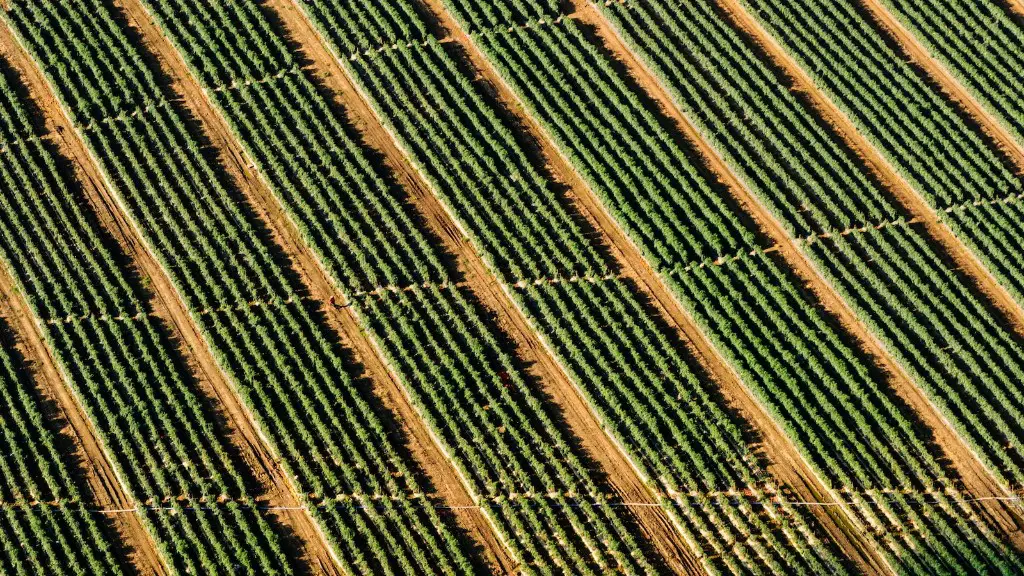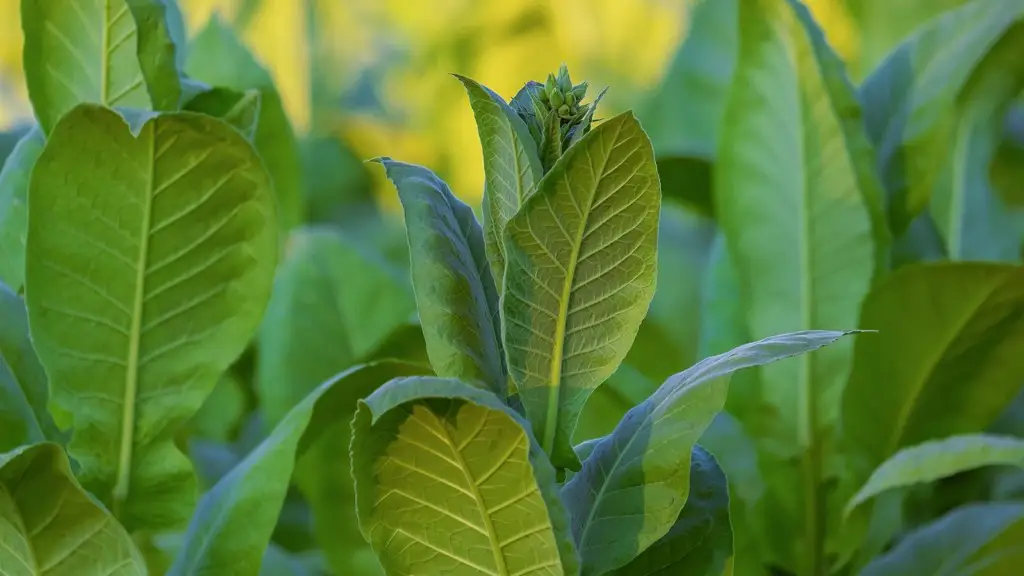There is no single federal agency that regulates organic agriculture in the United States. The United States Department of Agriculture (USDA) is the primary regulatory authority for organic agriculture, but the National Organic Program (NOP) is responsible for developing and enforcing national standards for organic production and labeling. State and private organizations also play a role in regulating organic agriculture, through certification programs and other means.
The National Organic Program (NOP) is the primary regulator of organic agriculture in the United States. The NOP is overseen by the United States Department of Agriculture’s (USDA) Agricultural Marketing Service (AMS).
Does the USDA regulate organic agriculture?
The National Organic Program (NOP) is a federal regulatory program that promotes and protects the organic agriculture industry in the United States. The NOP oversees the certification of organic farms and businesses, and ensures that products that are labeled as “organic” meet strict USDA standards. The NOP also conducts compliance and enforcement activities, and provides educational resources for the organic community.
The National Organic Program (NOP) is the federal regulatory framework governing organically produced crops and livestock. The US Department of Agriculture (USDA) oversees the program and enforces the NOP regulations and standards.
The NOP standards cover a wide range of topics, including crop production, livestock husbandry, and handling and processing of organic products. The standards are designed to promote ecological balance and protect the integrity of the food supply.
The NOP standards are voluntary, but producers who choose to certify their products as organic must adhere to the standards. Certification is granted by private, third-party organizations that have been accredited by the USDA.
The USDA organic seal is a voluntary label that can be used by certified organic producers and processors to identify their products. The seal indicates that the product has been certified as organic in accordance with the NOP standards.
Is USDA certified organic is a regulated term in the US
The USDA Organic label is the only federally regulated organic label on the shelf. This label guarantees that farmers and businesses have met strict standards for the growing, processing and handling of their products. These products are grown and processed without the use of synthetic pesticides or fertilizers, and they are also free of genetically modified organisms (GMOs). Furthermore, animals that are raised for organic meat, eggs and dairy products must be fed organic feed and given access to the outdoors.
The National Organic Program (NOP) is a federal legislative system for organic food in the United States of America. The NOP was established in order to create a consistent national standard for organic food production and labeling. The NOP is managed and implemented by the United States Department of Agriculture (USDA) Agricultural Marketing Service (AMS).
What does FDA regulate vs USDA?
The USDA regulates the production of meat, poultry, and egg products. All businesses that are regulated by the USDA are required to have a USDA inspector onsite at all times. The FDA regulates the production of everything else (non-meat foods, unusual meats, and fish products). No inspector is required onsite during production.
Organic foods are produced according to federal standards set by the U S Department of Agriculture (USDA) National Organic Program (NOP). These regulations describe the specific standards required to use the word “organic” or the USDA organic seal.
Organic foods must be produced without the use of synthetic pesticides, fertilizers, or other chemicals. They must also be produced without the use of genetically modified organisms (GMOs), ionizing radiation, or sewage sludge.
Organic farmers must use soil and water conservation practices, and they must integrate pest management strategies. Their animals must be raised in humane conditions and must be fed organic feed.
The USDA organic seal indicates that a product has been certified as meeting the USDA’s organic standards. Look for the seal when you’re shopping for organic foods.
Is USDA organic really organic?
The label for an organic product must include the name of the certifying agent and may also include the USDA Organic Seal and/or the 100 percent organic claim. In order for a product to be labelled as organic, the product and all of its ingredients must be certified organic, except for those substances that are specifically allowed or prohibited by the National List of Allowed and Prohibited Substances.
Products that are labeled as organic must have at least 95 percent certified organic content. Products that are labeled as “made with” organic must have at least 70 percent certified organic content. The USDA organic seal may not be used on these products.
Which government body oversees the National Organic Program
The National Organic Program (NOP), part of USDA’s Agricultural Marketing Service (AMS), has regulatory oversight responsibilities for the USDA organic standards and the accreditation of organic certifying agents. The program also conducts audits of certifying agents to ensure they are complying with the USDA organic standards.
There are three major trading blocs that use different standards: the National Organic Program (NOP) in the US, the EU standard (regulation 2092/91), and the Japanese Agricultural Standard (JAS) (Lockie et al, 2006). Each of these blocs has its own regulations and requirements for what can be considered “organic” and they are not always compatible. This can make it difficult for producers who want to sell their products in multiple markets. For example, a product that meets the NOP standard may not be able to be sold as organic in the EU. It is important to be familiar with the standards of each market you wish to sell in.
What is the difference between certified organic and organic?
To be considered certified organic, a product must be completely organic or 95-99% organic. Non-organic ingredients in the product must be approved by the USDA. Products that are made with organic ingredients typically fall into another category.
The FDA does not currently define or regulate the use of the term “natural” on food products. This means that companies are free to use the term however they see fit, without having to meet any specific criteria. This can be confusing for consumers, who may see the term and assume that it means the product is healthful and/or environmentally friendly. When choosing food products, it’s always best to read the label carefully and do your own research to determine what the product contains and how it was produced.
What is not allowed under the USDA organic program
GMOs are not allowed in products that are USDA organic certified. The USDA organic regulations prohibit the use of GMOs, listing them as “excluded methods,” and defining those methods as “a variety of methods to genetically modify organisms or influence their growth and development by means that are not possible under natural conditions or processes….”
Organic produce is grown on soil that has had no prohibited substances applied for three years prior to harvest. Prohibited substances include most synthetic fertilizers and pesticides.
What does NOP certified organic mean?
NOP is a federal regulatory program that develops and enforces consistent national standards for organically produced agricultural products sold in the United States. NOP also accredits third-party organizations to certify that farms and businesses meet the national organic standards. This program is important in ensuring that organic products are produced in a way that meets stringent standards and that consumers can be confident in the organic label.
The USDA is responsible for overseeing meat, poultry, and egg products. However, the FDA is responsible for the majority of the food supply. The FDA is responsible for dairy, seafood, produce, packaged foods, bottled water, and whole eggs.
Warp Up
The USDA National Organic Program (NOP) regulates organic agriculture in the United States. The NOP standards cover the production, handling, and labeling of organic agricultural products.
The United States Department of Agriculture (USDA) regulates organic agriculture in the United States. The USDA National Organic Program (NOP) develops, implements, and administers national production, handling, and labeling standards for organic agricultural products. These standards provide guidelines for organic farmers and processors, and assure consumers that products they purchase are produced according to strict organic standards.





